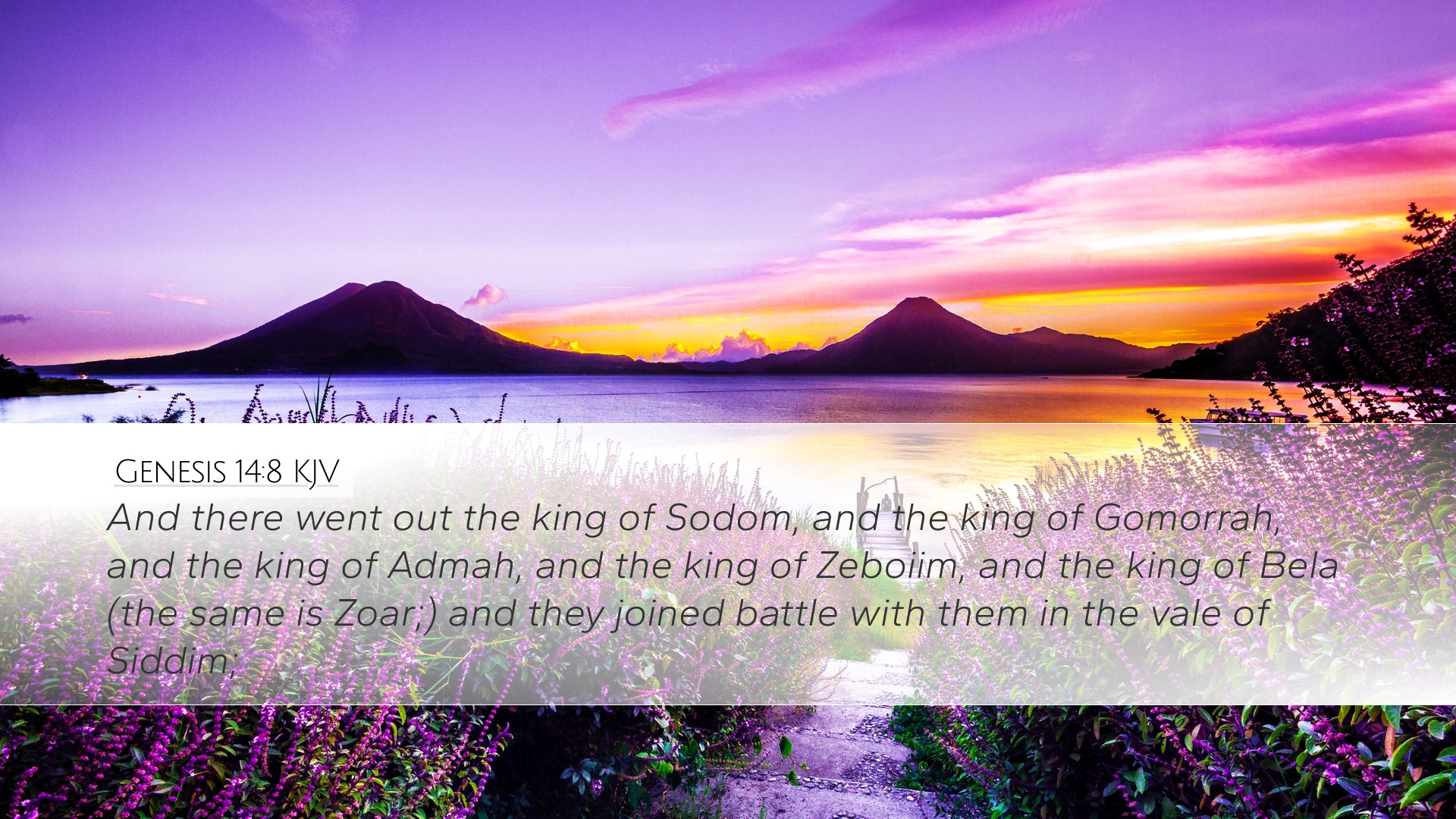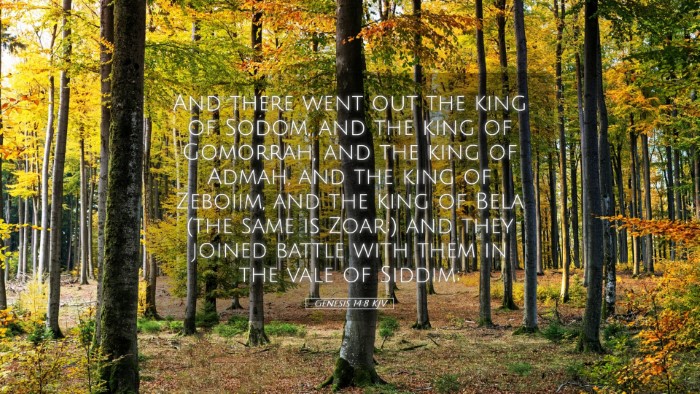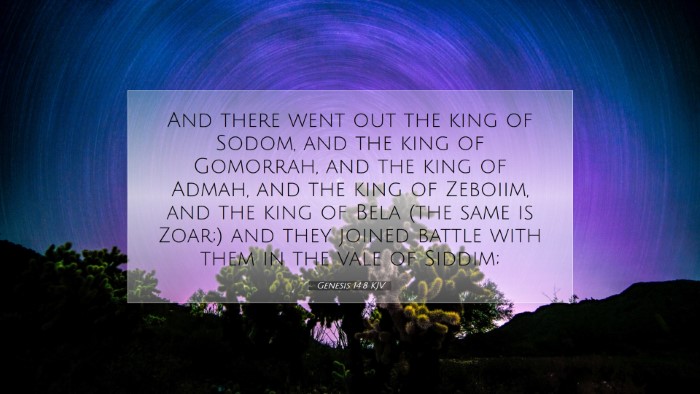Commentary on Genesis 14:8
Genesis 14:8 states: “Then the king of Sodom, and the king of Gomorrah, and the king of Admah, and the king of Zeboiim, and the king of Bela (the same is Zoar), went out, and they joined battle with them in the vale of Siddim.” This verse introduces a pivotal moment in the narrative of Abraham and sets the stage for the ensuing conflict between various kings. The implications of this encounter are vast, offering rich theological reflections for pastors, students, theologians, and Bible scholars.
Contextual Background
The context of Genesis 14 is the account of the alliance of five kings from the cities of the plain (Sodom, Gomorrah, Admah, Zeboiim, and Bela) against four other kings led by Chedorlaomer, king of Elam. This conflict signifies both a geographical and spiritual battleground. The presence of Sodom and Gomorrah alludes to the sinful practices that later lead to their judgment, representing human depravity.
Insights from Public Domain Commentaries
Matthew Henry’s Commentary
Human Conflict: Henry highlights that this battle is indicative of the strife and wars that arise among men, often fueled by greed, desire for power, and territorial ambition. The joining of forces against a common enemy demonstrates the natural inclination toward conflict rather than peace.
Significance of Sodom: Henry notes that the mention of Sodom, a city later infamous for its sin, serves as a foreshadowing of its eventual destruction. The kings’ alliance signals both moral and social decay, showcasing the severity of human rebellion against God.
Albert Barnes’ Notes
Divine Providence: Barnes emphasizes that, despite the chaos of war and rebellion, God’s providence is at work. The kings’ decision to battle is not merely a human affair but intertwined with God's overarching plan, particularly in relation to Abram’s future.
Paganism and Idolatry: The names of the cities—particularly Sodom and Gomorrah—carry connotations of idolatry, moral decay, and opposition to the covenant community represented by Abram. Barnes underscores how the outcome of this battle would ultimately have implications for the fate of Abram and his descendants.
Adam Clarke's Commentary
Geopolitical Implications: Clarke suggests that this encounter reflects the ancient geopolitics of the region, with city-states forming alliances based on mutual interests. The mention of Bela, later known as Zoar, indicates a strategic retreat from the cities of the plain, which would later play a critical role during the destruction of Sodom and Gomorrah.
Spiritual Warfare: Clarke further argues that this passage represents a larger theme of spiritual warfare. The kings embody forces that oppose the purposes of God, illustrating how earthly powers often resist divine authority. The conflict is not merely physical but deeply spiritual, portraying the ongoing battle between good and evil.
Theological Reflections
- Human Nature and Conflict: The conflict illustrated in Genesis 14:8 reveals the sinful nature of humanity. Wars and strifes often arise from covetousness and pride, reflecting the fallen state of mankind described in Romans 3:10-12. It invites contemporary readers to reflect on the origins of conflict in their own lives and communities.
- God’s Sovereignty: Amidst turmoil, this verse reminds believers of God's sovereignty in all situations. As pastors and theologians study this text, they can find reassurance in the fact that God governs human affairs, ushering forth His redemptive plan—even through conflict.
- The Call of the Believer: Abram's silent witness during this conflict calls believers to be conduits of peace in their communities. The battle involving Sodom's kings is contrasted against Abram's faith journey, urging readers to choose faith over folly and peace over conflict.
Conclusion
Genesis 14:8 presents a multifaceted narrative that intertwines themes of conflict, moral depravity, and divine purpose. Through the insights provided by public domain commentaries, it offers deeper understanding for individuals engaged in theological studies and pastoral ministries. The kings’ alliance in battle sets the stage for a dramatic unfolding of events, effectively communicating God’s sovereignty and the implications of human sin. As pastors and scholars delve into this passage, it serves as a catalyst for examining the nature of conflict in their congregations and communities, ultimately leading to an understanding of grace and redemption in the face of strife.


